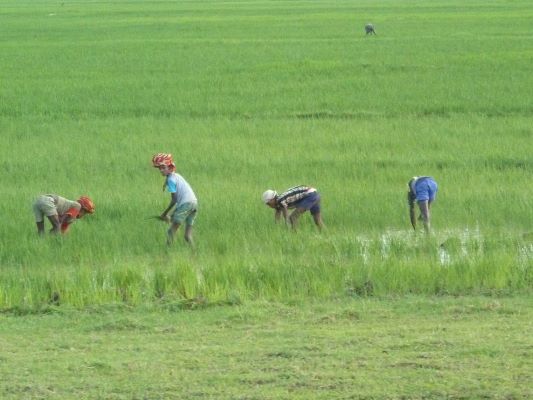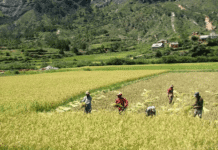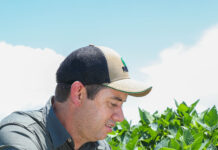An innovative crop insurance scheme by the World Food Programme (WFP) in partnership with the Ethiopian government and nonprofit social enterprise, Pula Advisors is redefining the future of rural farming in the East African country.
Launched in 2013, the scheme insures farmers against droughts, excessive rainfall, hailstorms, pests and crop diseases which have been discouraging the growers from investing in improved agricultural practices, making them even more vulnerable to climate extremes and food insecurity.
According to WFP, for millions of Ethiopians, farming is not merely a profession; it is a way of life woven into their identity and passed through generations. However, farming is a risky business in the country, where climate shocks, conflict and unpredictable market prices can spell disaster.
Yohannes Negash is one such farmers. He hails from the Ethiopia’s northern Amhara region where these challenges, just like other parts of the country, have been severe.
WFP reports that Negash who plants chickpeas, pulses, soya beans and wheat at some point lost half of his wheat harvest to a crop disease known locally as wag.
“I’m a farmer, born into a farming family, with a legacy that stretches back through generations, however, with these challenges, he had wondered how he will have the courage to plant again?” he told WFP.
Today, the narrative of Negash and his colleagues have started changing as they can now bet on their future curtesy of the scheme.
Amhara farmers’ insurance scheme targets 54,000 growers
The Amhara farmers’ insurance scheme — amounting to WFP’s biggest of its kind to date — is part of broader, global rural resilience initiative that WFP supports with a raft of governments and partners. It targets some 54,000 farmers in the Amhara region alone. Beyond offering insurance, the resilience effort aims to improve farming practices and incomes, for example by hiring rural workers for projects like restoring degraded lands.
“The idea is to reinforce farmers’ resilience at every point in the farming process, which builds their capacity to withstand the effects of extreme weather and strengthens their food and income security,” says Olipa Zulumbata, WFP programme head in the Amhara region.
For Negash, insurance has been a rare blessing amid ongoing challenges. Droughts, crop diseases, and conflict have devastated his harvests.
“The past few years have been tough,” he says. “War reached us in 2021, and I couldn’t harvest.”
Last year, wag disease wiped out his crops, even as conflict continued. Initially skeptical, Negash eventually enrolled in the crop insurance scheme after attending meetings.
“We initially struggled to gain acceptance,” says Tackle Hailu, a project coordinator with WFP partner Pula Advisors. “However, our collaboration with WFP and other partners to educate the communities led to great success.”
Payouts
This year, Negash was among tens of thousands of farmers who received insurance payouts totaling US$675,000 for wag-destroyed harvests in the region.
“The biggest lesson I’ve learned is that while I can’t control everything that affects my farm, I can be prepared,” he says. “For vulnerable farmers like me, crop insurance is essential. Just as we have health insurance for our bodies, we need insurance for our farms.”
WFP’s initiatives supporting smallholder farmers with crop insurance in Ethiopia are made possible thanks to the generous support of Kreditanstalt für Wiederaufbau (KfW), the German Development Bank.








